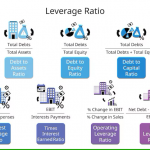In the fast-paced world of finance, hedge funds have long been considered the elite players. With their sophisticated strategies and substantial resources, they navigate the market with precision and finesse. But are there any valuable lessons that retail investors can learn from these financial behemoths?
In this article, we delve into the world of hedge fund strategies and uncover the key takeaways that can benefit retail investors. From understanding risk management techniques to exploring alternative investments, we explore how retail investors can apply these concepts to enhance their portfolio performance. While hedge funds operate on a larger scale, the principles underlying their strategies are applicable in the retail investor space as well.
By adopting a thoughtful and calculated approach, retail investors can align their investment goals and risk appetite to optimize their returns. Join us as we demystify the complex world of hedge fund strategies and unveil the valuable insights retail investors can gain. From diversification techniques to market timing, this article offers actionable advice that empowers retail investors to make informed investment decisions. It’s time to level the playing field and reap the benefits of hedge fund strategies.
Common Hedge Fund Strategies Explained
Long/Short Equity Strategy
One of the most common hedge fund strategies is the long/short equity approach. This strategy involves taking both long and short positions in the market, aiming to generate positive returns regardless of the overall market direction. Hedge fund managers who employ this strategy carefully analyze individual stocks, identifying those they believe will outperform (long positions) and those they expect to underperform (short positions).
The primary goal of the long/short equity strategy is to generate consistent returns while minimizing market risk. By offsetting long and short positions, hedge funds can create a market-neutral portfolio, reducing their exposure to broad market fluctuations. This approach allows them to capitalize on both rising and falling markets, providing a level of protection against downturns. Retail investors can learn from this strategy by incorporating a similar long/short approach, albeit on a smaller scale, to diversify their portfolios and mitigate overall market risk.
Another key aspect of the long/short equity strategy is the use of leverage. Hedge funds often utilize leverage to amplify their potential returns, borrowing funds to increase the size of their positions. While this can magnify gains, it also heightens the risk of losses. Retail investors should exercise caution when considering the use of leverage, as it can significantly impact their portfolio’s risk profile. Understanding the risks and potential rewards of leverage is crucial for those looking to emulate this hedge fund strategy.
Global Macro Strategy
Global macro strategies are another popular approach employed by hedge funds. These strategies focus on identifying and capitalizing on broad economic trends and market shifts across different asset classes, such as equities, fixed income, currencies, and commodities. Hedge fund managers who utilize this strategy closely monitor macroeconomic indicators, geopolitical events, and other global factors that can influence the performance of various markets.
By anticipating and positioning their portfolios accordingly, global macro hedge funds seek to generate profits regardless of the direction of individual markets. This approach requires a deep understanding of economic cycles, monetary policies, and the interplay between different asset classes. Retail investors can learn from this strategy by broadening their investment horizons and considering the impact of macroeconomic factors on their portfolios.
One key aspect of the global macro strategy is the ability to quickly adjust portfolio allocations in response to changing market conditions. Hedge funds often employ sophisticated analytical tools and employ teams of experienced economists and market analysts to identify opportunities and mitigate risks. Retail investors can emulate this approach by regularly reviewing their portfolios, staying informed about global economic developments, and being willing to make timely adjustments to their asset allocations.
Event-Driven Strategy
Event-driven strategies focus on capitalizing on specific corporate events or market-moving developments, such as mergers and acquisitions, restructurings, spin-offs, or regulatory changes. Hedge fund managers employing this strategy carefully analyze the potential impact of these events on the value of various securities, seeking to profit from the resulting price movements.
By closely monitoring corporate announcements and industry trends, event-driven hedge funds aim to identify undervalued or mispriced securities and position their portfolios accordingly. This strategy often involves taking long and short positions to create a hedged portfolio, reducing the overall market risk. Retail investors can learn from this approach by staying informed about corporate actions and industry news that may affect the companies in their portfolios.
One key aspect of the event-driven strategy is the ability to conduct thorough research and analysis to identify potential opportunities. Hedge fund managers often have access to extensive resources, including teams of analysts and proprietary data sources, to gain a competitive edge. Retail investors can emulate this approach by dedicating time to researching companies, industry trends, and potential corporate events that may impact their investments. This level of due diligence can help retail investors make more informed decisions and potentially uncover undervalued or mispriced securities.
Managed Futures Strategy
The managed futures strategy is another hedge fund approach that focuses on trading futures contracts across various asset classes, including commodities, currencies, and fixed income. Hedge fund managers employing this strategy use quantitative models and systematic trading strategies to identify and capitalize on market trends, both upward and downward.
By diversifying their investments across different asset classes and markets, managed futures hedge funds aim to generate positive returns regardless of the overall market direction. This strategy often involves the use of advanced algorithms and sophisticated trading systems to analyze market data and make investment decisions. Retail investors can learn from this approach by considering the benefits of diversifying their portfolios beyond traditional stocks and bonds, and exploring the potential of alternative investments such as futures contracts.
One key aspect of the managed futures strategy is the ability to adapt to changing market conditions. Hedge fund managers in this space often employ dynamic risk management techniques, adjusting their positions and leverage levels based on market volatility and trends. Retail investors can emulate this approach by regularly reviewing their portfolios, monitoring market conditions, and being willing to make timely adjustments to their asset allocations to mitigate risk and capitalize on emerging opportunities.
Market-Neutral Strategy
The market-neutral strategy is a hedge fund approach that aims to generate positive returns regardless of the overall market performance. This strategy involves taking long and short positions in various securities, with the goal of creating a portfolio that is largely insulated from broad market movements.
Hedge fund managers employing this strategy carefully analyze individual securities and construct a portfolio that is designed to have minimal correlation to the broader market. By offsetting long and short positions, they seek to create a market-neutral portfolio that generates returns primarily from the relative performance of the individual securities, rather than from the overall market direction.
One key aspect of the market-neutral strategy is the emphasis on risk management. Hedge fund managers in this space often utilize sophisticated risk-monitoring tools and techniques to ensure that their portfolios remain well-balanced and diversified. Retail investors can learn from this approach by focusing on constructing a portfolio that is designed to withstand market volatility, rather than simply chasing the overall market’s performance.
Hedge Fund Strategies for Retail Investors
Diversification Techniques
One of the primary lessons retail investors can learn from hedge fund strategies is the importance of diversification. Hedge funds often employ a wide range of strategies and invest across multiple asset classes, including stocks, bonds, commodities, and alternative investments. This diversification helps to reduce the overall risk of their portfolios and provides a level of protection against market downturns.

Retail investors can apply similar diversification techniques to their own portfolios. By allocating their investments across different asset classes, sectors, and geographic regions, they can reduce their exposure to individual market risks and potentially achieve more stable returns over the long term. This approach can be particularly beneficial during periods of market volatility, as diversification helps to cushion the impact of losses in any one particular investment.
In addition to traditional asset classes, retail investors can also explore alternative investments, such as real estate, private equity, or hedge fund-like strategies, to further diversify their portfolios. While these investments may carry higher risk profiles, they can provide valuable diversification benefits and potentially enhance overall portfolio performance. By carefully researching and understanding the risks and potential rewards of these alternative investments, retail investors can emulate the diversification strategies employed by hedge funds.
Risk Management Techniques
Another key lesson that retail investors can learn from hedge fund strategies is the importance of effective risk management. Hedge funds are known for their sophisticated risk-monitoring and mitigation techniques, which are designed to protect their portfolios from significant losses.
One such technique is the use of stop-loss orders, which automatically sell a security when it reaches a predetermined price level. This helps to limit the downside risk of individual investments and can be a valuable tool for retail investors as well. By setting appropriate stop-loss levels, retail investors can protect their portfolios from excessive losses and maintain a level of discipline in their investment decisions.
Hedge funds also often employ hedging strategies, such as the long/short equity approach, to offset market risks and generate positive returns regardless of the overall market direction. Retail investors can apply similar hedging techniques to their own portfolios, either by directly taking short positions or by utilizing derivative instruments like options or futures. While these strategies may require a more advanced understanding of financial markets, they can provide a level of protection against market downturns.
Market Timing Strategies
Hedge funds are known for their ability to time the market and capitalize on short-term opportunities. While retail investors may not have the same level of resources and expertise as hedge funds, they can still learn from the market timing strategies employed by these financial institutions.
One such strategy is the use of technical analysis, which involves studying historical price and volume data to identify patterns and trends in the market. Hedge fund managers often utilize sophisticated algorithms and quantitative models to analyze market data and make informed investment decisions. Retail investors can emulate this approach by educating themselves on technical analysis techniques and incorporating them into their investment decision-making process.
Another market timing strategy that retail investors can learn from hedge funds is the concept of dynamic asset allocation. Hedge funds often adjust their portfolio allocations in response to changing market conditions, shifting their exposures to take advantage of emerging opportunities or mitigate risks. Retail investors can apply a similar approach by regularly reviewing their portfolios, monitoring market trends, and making timely adjustments to their asset allocations to align with their investment goals and risk tolerance.
Benefits and Risks of Hedge Fund Strategies
Benefits of Hedge Fund Strategies for Retail Investors
By adopting the strategies and techniques employed by hedge funds, retail investors can potentially reap several benefits. One of the primary advantages is the potential for enhanced portfolio diversification. By incorporating alternative investments and hedging strategies, retail investors can reduce their overall market risk and create a more resilient portfolio.
Additionally, the market timing and risk management techniques used by hedge funds can help retail investors navigate volatile market conditions more effectively. By identifying and capitalizing on short-term opportunities, as well as mitigating downside risks, retail investors can potentially achieve more consistent and stable returns over time.
Furthermore, the principles underlying hedge fund strategies, such as thorough research, disciplined decision-making, and a focus on risk-adjusted returns, can be valuable for retail investors to adopt. By emulating these practices, retail investors can improve their investment decision-making process and potentially enhance the long-term performance of their portfolios.
Risks of Hedge Fund Strategies for Retail Investors
While the adoption of hedge fund strategies can offer potential benefits, it is crucial for retail investors to be aware of the associated risks. One of the primary concerns is the increased complexity and sophistication of these strategies, which may require a deeper understanding of financial markets, investment instruments, and risk management techniques.
Additionally, the use of leverage, a common practice in hedge fund strategies, can amplify both gains and losses, potentially exposing retail investors to higher levels of risk. Retail investors should exercise caution when considering the use of leverage and ensure that they fully understand the potential implications on their portfolios.
Another risk factor is the lack of liquidity often associated with alternative investments, such as those utilized in hedge fund strategies. Retail investors may face challenges in quickly accessing their funds or exiting certain positions, which can be particularly problematic during times of market stress.
Lastly, the fees and expenses associated with implementing hedge fund-like strategies may be higher than those of traditional investment approaches. Retail investors should carefully evaluate the costs and ensure that the potential benefits outweigh the additional expenses.
Conclusion: Applying Hedge Fund Strategies to Your Investment Portfolio
In conclusion, the strategies and techniques employed by hedge funds offer valuable insights and lessons that retail investors can apply to their own investment portfolios. By understanding the principles of diversification, risk management, and market timing, retail investors can enhance their investment decision-making and potentially improve the overall performance of their portfolios.
However, it is crucial for retail investors to approach the adoption of hedge fund strategies with caution and a thorough understanding of the associated risks. The complexity of these strategies, the use of leverage, and the potential liquidity challenges require a higher level of financial literacy and risk tolerance.
By carefully researching, analyzing, and selectively incorporating the appropriate hedge fund strategies into their investment approach, retail investors can take a step towards leveling the playing field and reaping the benefits of these sophisticated financial techniques. Remember, the key to success lies in finding the right balance between risk and reward, and aligning these strategies with your individual investment goals and risk appetite.
Embark on your journey to apply hedge fund strategies to your investment portfolio, and unlock the potential for enhanced diversification, risk management, and market-timing capabilities. With the right approach and a commitment to continuous learning, retail investors can bridge the gap and capitalize on the valuable insights from the world of hedge funds.






